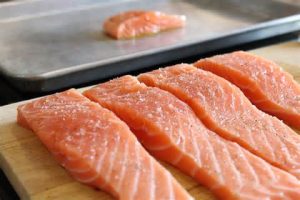6 Top Questions About Protein
Building Muscle | Diet | Nutrition
Posted on June 26, 2014 by Jenny Cromack
There are a number of questions I get asked about protein such as….how much protein should be eaten per meal? When should I eat protein throughout the day? Why do I need protein? In this blog I will answer 6 common questions about protein to get you up to speed on how your body uses protein and why it is important.
1. How much protein is needed for protein synthesis?
Many people think that our body can only absorb 20 to 30 grams of protein at any one time. This is not totally true as the body absorbs all the protein you eat. 20-30 grams is the amount of protein needed to maximally trigger protein synthesis. Studies have shown that a meal that contains 30 grams of lean beef increases muscle protein synthesis by about 50% in both young and old volunteers. A higher dose of 90 grams did not lead to a further increase in photosynthesis.
2. What is the best source of protein?
When it comes to supplementing protein Whey Protein is the best option due to its amino acid profile which leads to better protein synthesis and when used with the correct training leads to greater muscle mass gains long term.
3. How much protein do you need following strength training?
The research consistently shows that 20 to 30g of protein after training will maximally stimulate protein synthesis. When a dose of 0, 5, 10, 20 and 40 grams of whole egg protein were compared and it was found that 20 grams was enough to trigger photosynthesis however there was no added benefit from 40 grams. During the day the consumption of protein is important to sustain protein synthesis and help aid recovery.
4. What happens if you consume more than 20-30 grams of protein?
It has already been established that is better to spread protein intake out over the day but what happens if you ate a larger amount of protein. Once protein synthesis is working maximally additional protein is used for building enzymes, hormones, immune functions etc.
Some additional protein is stored in muscle tissues as amino acids as a reserve. Once the protein is used up by the above circumstances the left over protein is turned into glucose via the liver which the body then burns.
5) Is excess protein stored as fat?
Even though excess protein is turned into glucose and used as energy, it is very unlikely that a high protein diet will make you fat. There are however a number of factors that should be taken into account for example an individual who has a high protein diet but also has a high carb and total calorie intake and a sedentary life this could lead to a gain in fat. It is therefore important to take the following factors into consideration
• Physical activity levels
• Age
• Total calorie intake
• Proportion of carbohydrate and protein intake
6) Protein for your goal
If your goal is to put on muscle then protein is the KING. You should aim for at least 1.6g/kg of protein each day. Be sure to spread this throughout the day.
If you are aiming to lose fat then ensure you include protein in your diet. Be careful to ensure that your total calorie intake and proportion of carbs is appropriate for your physical activity levels and unique genes.
Consuming 20-30 grams of protein is sufficient to stimulate protein synthesis , it is beneficial to eat more but it will not develop muscle building advantages.


